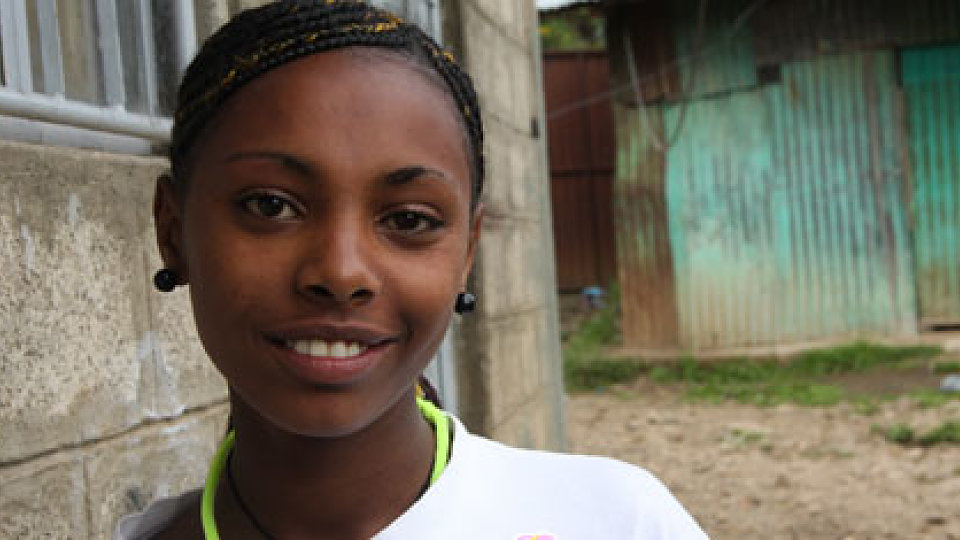Buckner International Develops Foster Care Programs Worldwide
By Analiz G. Schremmer
Buckner International
DALLAS – Buckner International has been providing homes for orphans and vulnerable children in the United States since its inception in 1879. But in the past 11 years, Buckner has been called on to introduce and develop foster care in six countries worldwide.
“It really doesn’t matter whether a child lives in the United States, Ethiopia or anywhere else in the world, the one thing all children have in common is the desire to be part of a family,” said Randy Daniels, vice president of international operations for Buckner.
“We have been asked by so many foreign officials for help because foster care works. It helps their economy and places children in supportive home environments, which in many countries helps reduce future crime, prostitution and gang-related activities.”
In 1999, Buckner launched its first international foster care program in conjunction with Russian officials in Vladimir, Russia. Overcrowded orphanages and a struggling economy provided a backdrop for Buckner to implement its historical foster care program to reduce the number of children in orphanages and provide a supportive, nurturing family environment for vulnerable children.
Today, Buckner provides foster care services in the United States, Guatemala, Honduras, Ethiopia, Kenya and Peru, and kinship care, where children are placed in the homes of family members. Combined, these programs serve hundreds of children and families.
Although the need for residential children’s homes still exists in some places, Daniels said foster care is usually a healthier alternative. “It helps children receive one-on-one attention and allows them to be part of a family,” he said.
Buckner was the pioneer organization to begin a structured and legal foster care program in Kenya, said Dickson Masindano, director of Buckner Kenya.
“In African culture, a child belongs to the community or the village and therefore, when the issue of orphans comes up, foster care is the most consistent with Kenyan culture,” he said.
Buckner foster care in Kenya is used as a model system for other organizations that serve children in the country. Buckner Kenya has also been a part of developing policies for disadvantaged children.
Buckner and Bright Hope Organization partner in Ethiopia to provide foster care for more than 4,000 children and 1,500 families. Ethiopia is the most populated nation in Africa with an estimated 80 million people, 5.5 million children who are either orphaned or vulnerable, according to USAID officials.
In Latin America, foster care is counter cultural in a lot of ways, said Sergio Ramos, Buckner regional director for Latin America. The idea of caring for children who are unrelated to you is not the norm, although it is something worth working towards since it is best for the children, he said.
Daniels said it’s important to educate and be patient when introducing the concept of foster care cross-culturally. “We often frame it in economic terms to the governments: cost of orphanage support vs. cost of foster care. And then it’s important to point out that your children are a long-term resource and they are always, regardless of the culture, better in a loving family than in an institution,” he said.
Besides cultural challenges, providing initial and ongoing training across countries and language barriers can also come as a challenge.
“We have brought international staff to Dallas for training and we have taken our training into their countries,” Daniels said. “We put together a presentation on the basic steps to building a foster care program and we present it, often through a translator.”
Claudia Leon, director of Buckner Peru, has become a foster care expert in Latin America, speaking at conferences in Argentina, Bolivia and Brazil about best practices and development of programs to place children into families. Buckner worked with the Peruvian government to implement a foster care pilot program in Peru. The first six children were placed into homes in 2008.
“One of the biggest challenges that we faced, in Peru, was that few people understood what foster care meant,” Leon explained. “To this day, we still struggle in explaining how it differs from adoption. People often think that it is the same thing, or that we are somehow hiding the term adoption behind another name. The idea of temporary parents is difficult to explain in our culture.”
Currently, Buckner is developing foster care programs in Guatemala and Honduras. In October 2010, Buckner signed an agreement with Bienestar Social in Guatemala to develop the country’s first pilot foster care program with a goal of placing 20 children in 2011. And in Honduras, Buckner is working to place children from government orphanages in the San Pedro Sula and Tegucigalpa into trained Christian foster families.
“We have a lot of work to do, but every child we place in someone’s home is one less child in an institutional setting,” Daniels said. “There are 143 million orphans in the world, and every child we help is one less. That’s important work, and we are thankful to be a part of it.”




Comments